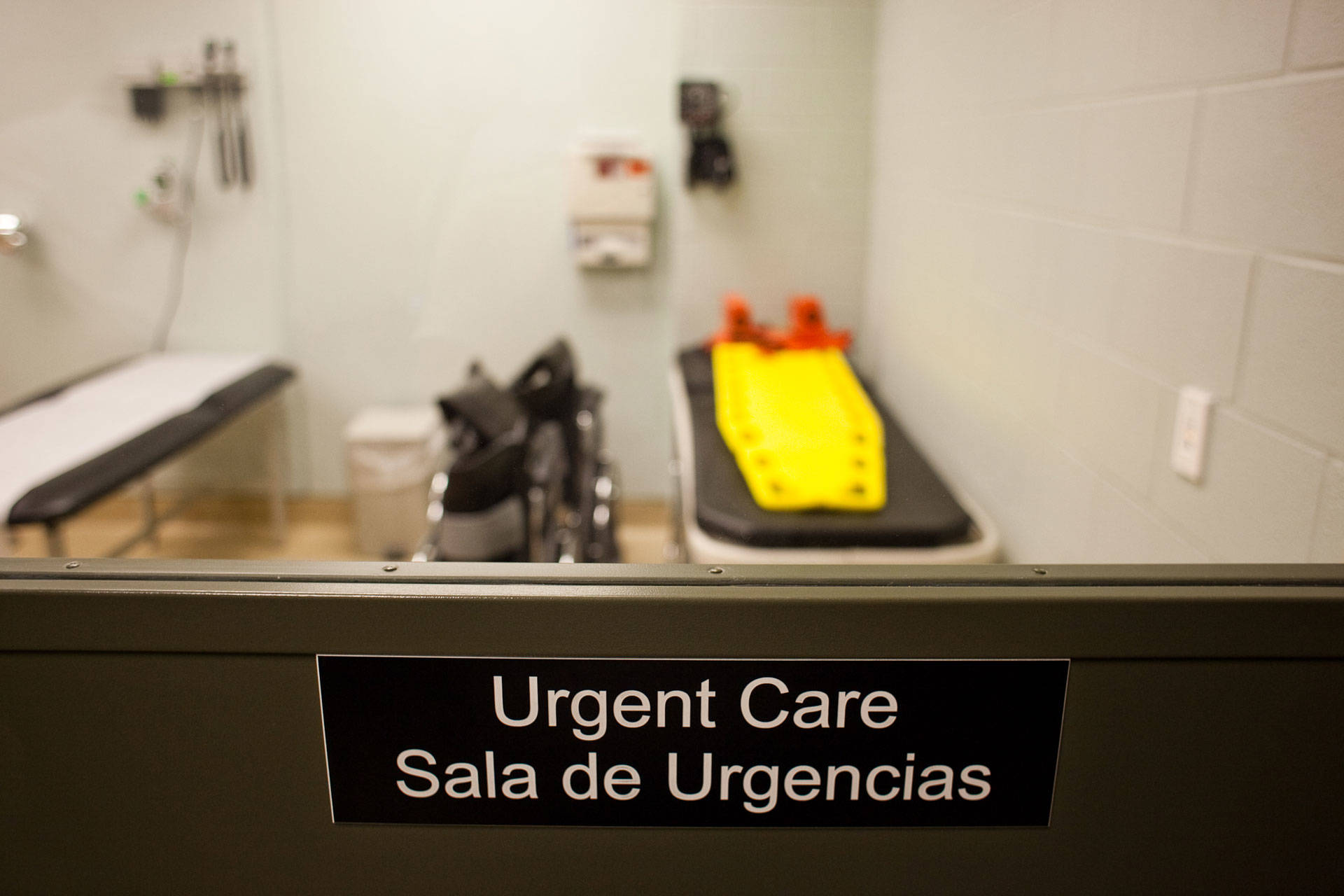"A lot of kids, and mothers as well, aren't getting the medical care that they need," said Katy Murdza, the advocacy coordinator for the Dilley Pro Bono Project, a non-profit that provides legal help to thousands of families who pass through the facility each year.
Murdza said the news of the toddler’s death shortly after her release was devastating but not surprising, given what advocates witness daily. She said mothers complain that medical staff rebuff their requests for care.
"People ... consistently bring their children back, saying ‘I haven't seen my child this sick, I really think there's something bigger going on here.’ And the medical staff [are] just continuing to give them Vick's VapoRub and saying, to ‘drink more water,’" said Murdza.
Lawyers with the American Immigration Council and the American Immigration Lawyers Association have filed formal complaints with ICE almost daily since the facility opened in 2014, following a surge of families fleeing violence in Central America.
Murdza said the lawyers request better care for sick detainees, "and about once a week, we're saying ‘We don't believe this family should be here at all. They have a condition that your medical staff isn't able to treat here.’”
ICE Officials Tout Investments, Commitment to Medical Care
A statement from ICE says the agency spends $250 million a year on comprehensive health care for all detainees, and “takes very seriously the health, safety and welfare of those in our care.”
The statement goes on:
ICE is committed to ensuring the welfare of all those in the agency’s custody, including providing access to necessary and appropriate medical care. Comprehensive medical care is provided to all individuals in ICE custody. Staffing includes registered nurses and licensed practical nurses, licensed mental health providers, mid-level providers that include a physician’s assistant and nurse practitioner, a physician, dental care, and access to 24-hour emergency care.
The agency also points to a June 2017 report by the Department of Homeland Security’s Inspector General that found family residential centers “clean, well-organized, and efficiently run.”
But Peter Schey, a Los Angeles attorney advocating for the humane treatment of migrant children, says ICE is understaffed and under pressure to keep costs down.
"I think one of the ways they keep costs down is by not providing adequate medical attention to the children who are in these facilities," he said.
Schey is part of a legal team for plaintiffs in a 1997 consent decree known as the Flores settlement agreement, that governs the care of children in immigration custody. He said ICE does not have to keep parents and children locked up. Instead, officials could return to their previous practice of paroling families from custody to await their immigration court hearings.
"For decades various administrations released parents with the children shortly after apprehension," Schey said.
ICE was holding 2,185 adults and children in family detention, as of Aug. 21, according to an agency spokeswoman.
The South Texas Family Residential Center held 1,684 people. The Karnes County Residential Center in Texas held 461, and the Berks County Residential Center, in Pennsylvania, had 40 residents.
Trump administration officials have signaled their intention to expand ICE’s capacity to detain families. In June, immigration authorities issued a notice that they may seek up to 15,000 beds to detain families. The judge overseeing the Flores agreement has ruled that children should not be held in locked facilities such as these for more than 20 days.
